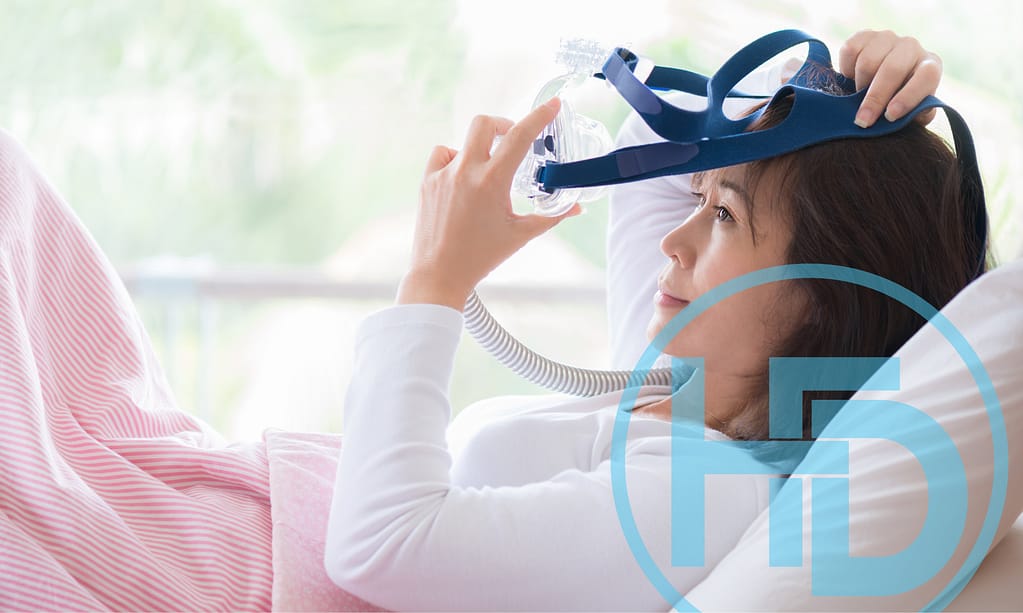Waking Up Tired? 3 Tips for Better Sleep With Sleep Apnea

Waking up tired after a full night’s sleep can leave you unsure of why you can’t get the rest you need. One common cause of sleep disturbances is sleep apnea, a condition that impacts your breathing as you sleep. Here is what you need to know about sleep apnea and how you can improve your sleep if you have this condition.
Understanding Sleep Apnea
Sleep apnea is a disorder that causes you to stop breathing while you sleep. It can occur because of a blockage to your airways or because your brain struggles to control your breathing when you’re asleep.
The lack of oxygen sleep apnea causes prompts your body to wake you up just enough to breathe. This continuous waking-up cycle makes it difficult to get the necessary deep rest needed because it interrupts your sleep cycle.
Struggling with sleep apnea can have a huge impact on your overall well-being. You may find yourself fighting to stay awake during the day or experiencing mood swings because of the lack of proper rest.
You can even experience memory and concentration problems, along with other brain function issues. The severe snoring that sleep apnea often causes may also affect your partner’s sleep.
Because of all the negative impacts sleep-disordered breathing causes, finding treatments and tips to manage the condition is essential.
3 Lifestyle Adjustments for Better Sleep
Having a consistent sleeping schedule is one of the best lifestyle adjustments you can make. You also want to create an environment in your bedroom that encourages sleep. Reduce distractions by not having a television in your room and avoiding the use of electronics right before bed.
Additionally, the following three lifestyle adjustments can help you sleep more soundly.
1. Sleep Position and Elevation
If you have obstructive sleep apnea, the problem often lies in the muscles in your neck and head that relax when you sleep, causing tissues to block your windpipe. By changing your sleeping position or using a pillow to keep your head raised, you may be able to prevent the blockage.
Sleeping on your side is particularly helpful in keeping your airway open.
2. Weight Management and Healthy Diet
Being overweight can put you at a higher risk of developing obstructive sleep apnea because the excess weight puts pressure on your upper airways. It also puts stress on your lungs because of the fat deposits that decrease your lungs’ breathing capacity.
Stick to a balanced diet that focuses mainly on fruits and vegetables, lean protein, and whole grains so you can lose some of the excess weight. Avoid foods and drinks that contain a lot of sugar or salt.
3. Avoiding Alcohol and Sedatives
Alcohol and other sedatives make obstructive sleep apnea worse because they exacerbate the cause of it—relaxed muscles. Alcohol makes oxygen blood levels drop more rapidly too, leading to waking up more often during the night. As you get closer to your bedtime, avoid drinking anything with alcohol or taking even mild sedatives.
Continuous Positive Airway Pressure (CPAP) Tips
One of the best treatment options for sleep apnea is continuous positive airway pressure (CPAP) therapy. It’s a treatment that relies on a specialized device to increase air pressure in your airways, keeping them open. The device requires the use of a mask connected to a hose as you sleep.
Ensure that you have the right mask size so that you don’t feel constricted, and make sure to give yourself time to get used to the mask and the machine. To do this, wear the appliance during the day for a bit as you watch television or during a similar activity.
If you struggle to tolerate the high air pressure, CPAP machines have a “ramp” setting that begins with low air pressure and increases during the night. CPAP machines can also make your mouth dry, especially if you tend to sleep with your mouth open. Consider adding a chin strap if you use a nasal mask or opting for a full face mask to avoid this issue.
Oral Appliances and Other Sleep Apnea Treatment Options
An alternative treatment for sleep apnea is turning to an oral sleep appliance. These include mouthpieces that function like nightguards, holding your tongue and jaw in the correct position to keep pressure off your windpipe. An occlusal splint lowers the jaw to keep your airways open.
Another treatment option for sleep apnea is using a nerve stimulator that keeps your tongue from relaxing and blocking your airway. Speak with your doctor to learn what type of sleep apnea you have and what treatment options could work best.
Turn to Edwardsville dentistry experts.
If you struggle with sleep apnea, taking action to improve your sleeping patterns is crucial for your well-being. Start with simple lifestyle changes, like sleeping on your side or elevating your head, as well as reducing your alcohol intake before bed. CPAP therapy is also a reliable treatment option to try, as is wearing devices like nightguards.
At Hite Family Dentistry, we offer effective help for sleep apnea so you can get the rest you need. Contact us today to schedule an appointment with our experienced and friendly team in Edwardsville, IL.
